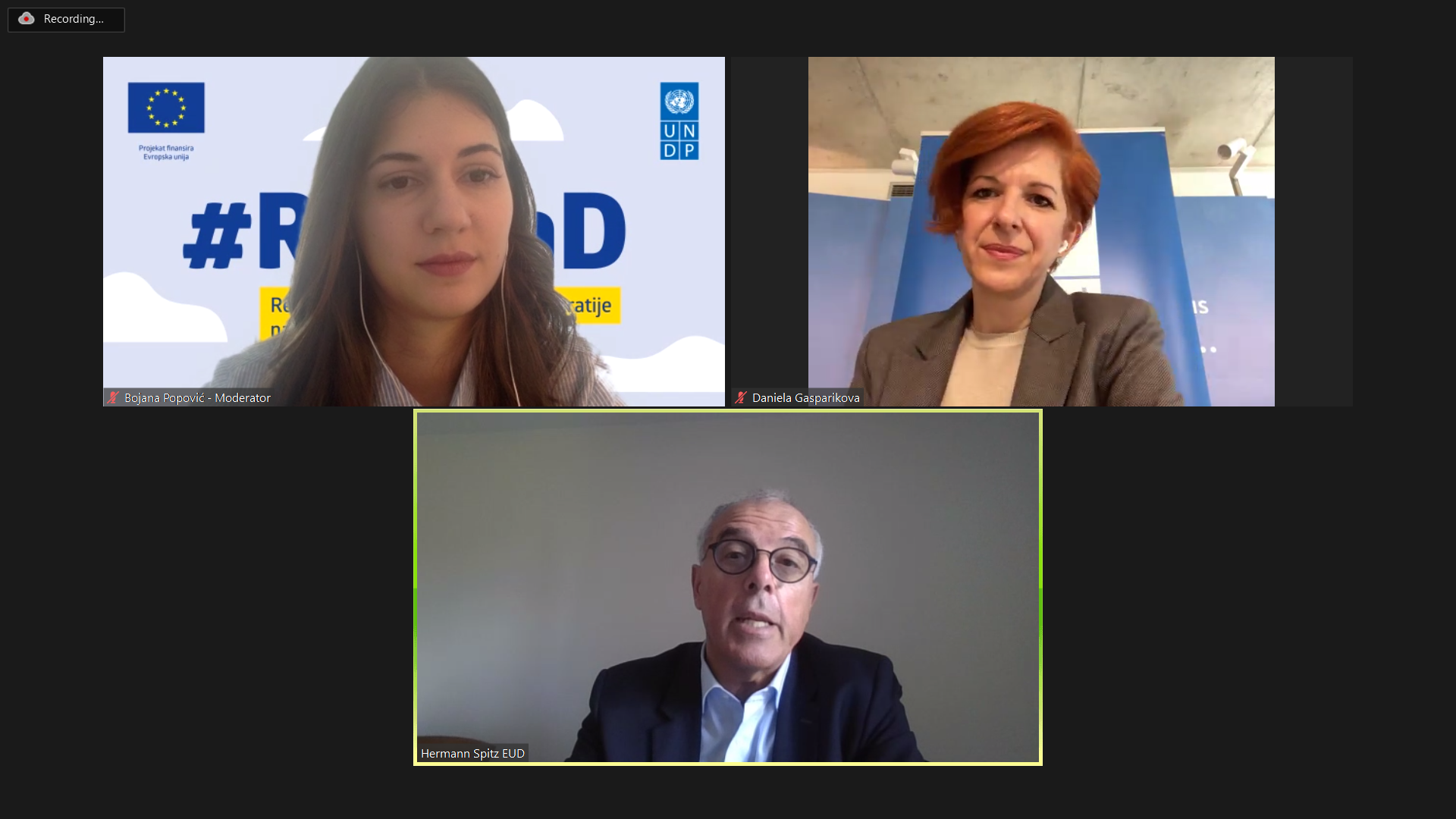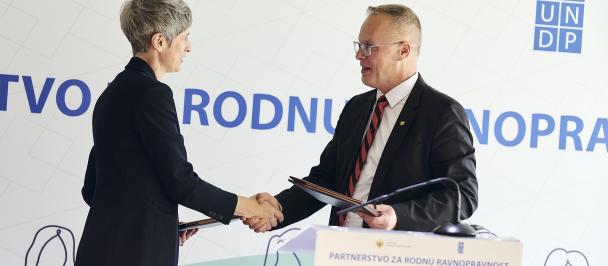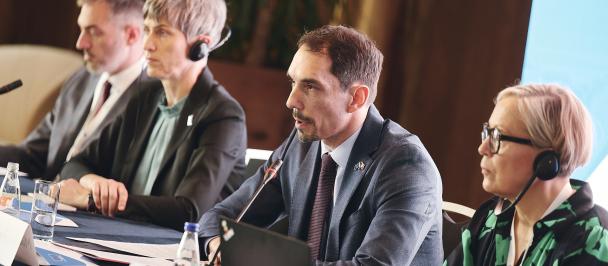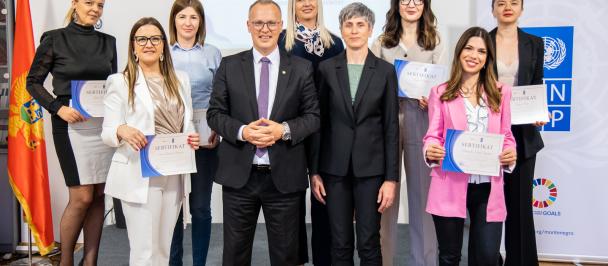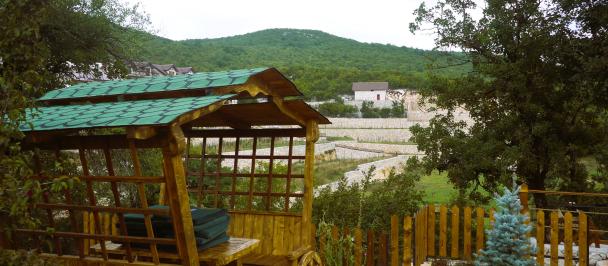Podgorica, May 20, 2021 - The needs of citizens and the local communities will be the focus of cooperation and joint action of local self-governments and non-governmental organizations in the second phase of the Regional Program for Local Democracy in the Western Balkans 2 (ReLOaD2).
An online event was held today to launch the second phase of the Regional Program for Local Democracy in the Western Balkans 2 (ReLOaD2), funded by the European Union and implemented by the United Nations Development Program (UNDP).
ReLOaD2 is a project that has been implemented since January 2021 in six countries and territories of the Western Balkans: Albania, Bosnia and Herzegovina, Kosovo*, Montenegro, North Macedonia, and Serbia. With the help of a methodology for funding NGOs based on the EU member states practice (LOD methodology), In the next four years, the program will enable better cooperation between local governments and NGOs, strengthen their partnerships with an emphasis on local communities, all in accordance with municipal priorities and development strategies. ReLOaD2 will also put focus on support for the development of young people's skills and encourage their participation in the decision-making processes and more active participation in all segments of society.
Five clusters of local self-government units will be selected to participate in the project through a public call that will be announced next week. All clusters of local self-government units from Montenegro that meet the invitation criteria can apply for the Public call.
Tamara Srzentić, Minister of Public Administration, Digital Society and Media, pointed out that she was particularly pleased that ReLOaD would be implemented in smaller municipalities that were given the opportunity to participate in the program and improve their capacities, and their NGOs would receive support for project implementation of interest to the local communities.
"Such projects should serve as a model for all municipalities on how to involve the community in solving problems. Whenever civil society and citizens get engaged, communities become strong, active and progressive. In this way, inter-municipal cooperation will be strengthened and the regional development of Montenegro will be encouraged," Srzentić said.
Daniela Gašparikova, UNDP Resident Representative in Montenegro, emphasized that the success of the first phase of ReLOaD exceeded expectations and had a positive effect on more than 7,000 beneficiaries through 50 projects in 5 Montenegrin municipalities. She encouraged municipalities to take part in this program in its next phase.
"We are introducing the concept of municipal clusters in order to encourage and promote the exchange of experiences and joint work not only between municipalities, but also between NGOs from different municipalities. The LOD methodology contributes to the establishment of accountable institutions, as well as clear and transparent procedures for allocating funds, thus strengthening trust at the local level between government and citizens. The second phase of ReLOaD is a great opportunity to continue with the good practice established during the previous four years and apply it to other municipalities in Montenegro," said Gašparikova.
Herman Spitz, Head of the Cooperation Sector in the Delegation of the European Union to Montenegro, believes that creating opportunities for civil society to become an efficient and responsible member of the community is a very important element of the EU enlargement efforts.
"In addition to financial support to civil society organizations, we wish to help create adequate structures and mechanisms for cooperation between civil society organizations and public administration, which yields palpable benefits to local communities. That is why we are very satisfied that the EU is financing the second phase of this program, which has achieved extraordinary results in the previous period, such as supporting mothers and providing opportunities for young and unemployed women for education and acquiring new skills," Spitz added.
Aleksandar Nikčević, a member of the rock group Štrajk mozga, that received support through the "Captured Tones" project implemented by the NGO Sinteza from Nikšić, said that his rock group, thanks to ReLOaD, managed to record their album, and that during the project implementation they received all the necessary support. He pointed out that he hopes that the new phase of ReLOaD will encourage young people in Montenegro, especially musicians, to make use of the opportunity and huge potential of this initiative, in order to bring rock and roll culture closer to young people in the best possible way.
Biserka Raičević, one of the participants in the golden embroidery training organized within the project "Preservation and development of the traditional craft of gold embroidery", implemented by the NGO Institute for Entrepreneurship and Economic Development from Podgorica, pointed out that this project was important because mastering gold embroidery and skills related to that craft preserved Montenegro's cultural heritage and helped pass it on to younger generations. Three brand new products inspired by gold embroidery and ribbons were created within the project, while the publication of the brochure "Montenegrin gold embroidery" was singled out as a special success – she said.
The event was organized through the Zoom platform in accordance with the measures to combat the COVID-19 pandemic.

 Locations
Locations